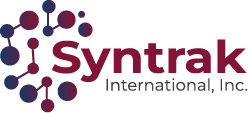As an Integrated Prevention team, you play a vital role in shaping the command climate at your military base. Your work directly impacts mission readiness, unit cohesion, and the overall well-being of service members. Yet translating the findings of the Defense Organizational Climate Survey (DEOCS) into meaningful and lasting change can feel like a monumental task.
If you’re looking to strengthen your command climate and address key challenges identified through DEOCS surveys, Professional Dynametric Programs (PDP) provides an actionable tool for Integrated Prevention teams. By focusing on team cohesion, leadership development, stress management, and inclusion, PDP equips Integrated Prevention teams with the tools needed to create lasting, meaningful change.
What is PDP?
PDP is used on over 32 active bases at all different levels of command. PDP combines behavioral assessments, workshops, and mentoring to address organizational challenges highlighted in DEOCS results. By integrating PDP into your Comprehensive Integrated Prevention Plan (CIPP), you can create a more cohesive, resilient, and motivated team.
Designed to address key challenges highlighted in DEOCS surveys, PDP equips teams and leaders with the tools to build trust, reduce stress, and enhance inclusion. This blog outlines how PDP addresses the critical areas of team dynamics, leadership development, stress management, and inclusion in a military context, and why your Integrated Prevention team should consider utilizing PDP assessments in the future.
Building Strong Team Dynamics and Cohesion
A connected, cohesive team is essential for mission success, yet creating that dynamic requires more than good intentions. PDP workshops help bridge communication gaps and foster mutual understanding among team members, creating the foundation for better collaboration.
Through these workshops, participants develop a deeper understanding of their own behavioral styles and those of their peers and leadership. This insight helps build trust and respect, paving the way for stronger teamwork. Service members are also equipped with life skills, such as conflict resolution and communication methods, which enable them to implement meaningful changes in how they interact with one another. What’s more, these workshops are based off of statistically validated assessments, ensuring the even the most “touchy-feely”-averse service members will find value in the results.
The benefits extend beyond communication. By improving perceptions of peers and recognizing each other’s strengths, team members build confidence in themselves, their teammates and their ability to work together. This renewed confidence boosts morale and helps create an environment where service members feel valued and motivated.
For Integrated Prevention teams, PDP workshops offer a clear and structured way to address challenges related to team cohesion, communication and leadership styles, ensuring that every member feels part of a unified effort.
Empowering Leadership for Lasting Impact
Leadership is the cornerstone of a healthy command climate. Strong leaders inspire trust, motivate their teams, set the tone for success and improve overall retention (the “Battalion Commander Effect”). However, even the most dedicated leaders can struggle with communication or adapting their styles to meet the needs of their teams. PDP offers a solution through workshops and mentoring programs tailored specifically to leadership development.
PDP helps leaders build trust by fostering mutual understanding between them and their teams. Leaders gain insights into their behavioral styles and learn how to adapt their communication to connect more effectively. Teams, in turn, learn to interpret and align with their leader’s approach, creating a stronger sense of alignment and purpose.
Transformational leadership is another area where PDP excels. By identifying a leader’s unique strengths, PDP helps them leverage these qualities to inspire and motivate their teams. Leaders can then lean into their natural behavioral tendencies and strengths to create a positive and engaging environment, driving team success.
For those who adopt a collaborative or low-extroversion style, PDP offers tools to address perceptions of passive leadership. Through mentoring, these leaders learn how to communicate their intentions and demonstrate their effectiveness, ensuring their impact is clear and well-received. Teams also learn to understand their leader’s style, changing perceptions.
By empowering leaders with communication skills, Integrated Prevention teams can address common DEOCS concerns, creating leadership that resonates with and supports service members.
Addressing Stress and Promoting Well-Being
Stress is an ever-present challenge in military environments, but PDP takes a proactive approach to help individuals and teams manage it. Through a combination of assessments, workshops, and mentoring, PDP identifies stressors and offers tailored strategies to mitigate them.
One of the first steps in managing stress is understanding its sources. PDP assessments pinpoint both individual and team stressors, providing clarity on where interventions are needed. From there, workshops and mentoring sessions guide service members in developing actionable plans to address these challenges. The focus isn’t just on temporary fixes but on creating sustainable strategies that promote resilience over time, which is crucial to having and maintaining a strong fighting force.
Work-life balance is another critical area where PDP makes a difference. By helping service members understand how their perceptions and expectations impact stress, PDP equips them to set healthier boundaries and manage demands more effectively. This balance not only improves individual well-being but also contributes to a more positive and productive command climate.
For Integrated Prevention teams, having quantifiable tools to measure and address stress head-on ensures a healthier and more focused force, ready to meet the demands of military life.
Fostering Engagement and Inclusion
Engagement and inclusion are essential for creating a command climate where everyone feels valued and drives overall success. PDP offers practical tools to help integrated prevention teams build these critical elements.
One of the key benefits of PDP is its focus on leveraging strengths. Workshops guide service members in identifying their own strengths and understanding those of their peers. This process aligns individual styles with team culture, increasing engagement and job satisfaction.
Inclusion is also a central focus of PDP mentoring. By promoting self-awareness, PDP helps individuals express their opinions and ideas more clearly, ensuring that everyone’s voice is heard. This fosters a culture of respect and belonging, where diverse perspectives are not only welcomed but actively encouraged.
For Integrated Prevention teams, addressing engagement and inclusion leads to stronger relationships, improved morale, and a command climate where every service member feels empowered to contribute.
Why Choose PDP for Your Prevention Team?
PDP offers a proven framework to address DEOCS challenges, from team cohesion to leadership and inclusion. By adopting PDP, Integrated Prevention teams can create a healthier, more engaged, and mission-ready force.
Take the first step in transforming your command climate—complete a PDP assessment today and let Syntrak International guide you through the next steps. Together, we’ll create a legacy of resilience and success, one service member at a time.





